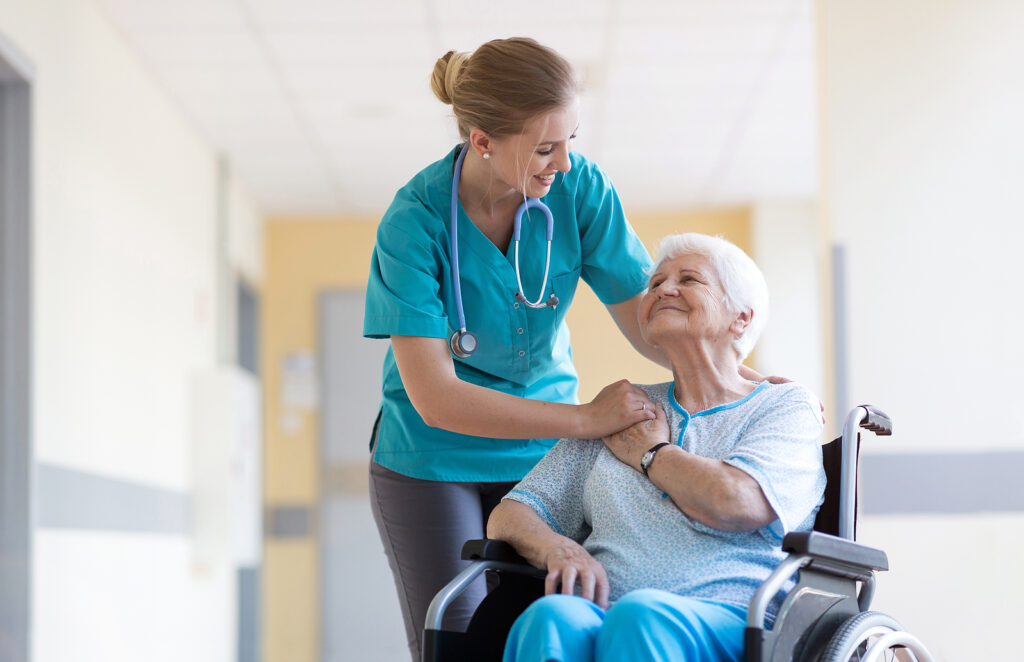
For seniors, the move from the hospital to their homes can be difficult. Particularly since discharge signals the start of a critical phase in the healing process, where follow-up and ongoing care are essential. Ensuring seniors receive proper post-hospital care can have a big impact on their quality of life, overall health, and rate of recovery.
The Significance of Follow-Up Care
Follow-up visits with medical professionals enable careful observation of a senior’s recuperation. These consultations aid in the early detection of any issues, guaranteeing prompt intervention. Physicians can evaluate the success of the treatment plan and modify medications or therapies as needed with routine check-ups. Other evidence of the importance of follow-up care is explored below:
- Reducing Readmissions: Reducing hospital readmissions is one of the main objectives of post-hospital care, which includes thorough follow-up treatment. According to studies, seniors are more likely to require readmission during the first 30 days following discharge. Healthcare professionals can detect any problems before they worsen and lower the risk of readmission by maintaining regular follow-up care.
- Ensuring Medication Adherence: Seniors may find it difficult to manage their medications, particularly following a hospital stay. Follow-up appointments offer a chance to discuss side effects and interactions, check adherence, and reassess medication. This is essential to preserving therapeutic success and avoiding side effects.
- Coordinating Care: A variety of healthcare providers, such as primary care doctors, specialists, physical therapists, and home care, are frequently involved in post-hospital care. In order to make sure that everyone is in agreement and working toward the same recovery goals, follow-up care assists in organizing these services.
The Importance of Ongoing Care
In addition to follow-up appointments, seniors need ongoing care to recover fully. Some of the post-hospital care that might be recommended includes the following:
Physical Rehabilitation: Physical therapy is a crucial part of continued care for seniors recuperating from illness or surgery. By increasing strength, balance, and mobility, physical therapy lowers the risk of falls and fosters independence.
Support for Emotional and Mental Health: As mentioned, the transition from hospital to home can be difficult. Seniors who require ongoing care should have their emotional and mental health needs met, with counseling and support to help them deal with emotional difficulties that might arise.
Nutritional Guidance: A healthy diet is essential to recuperation. In order to guarantee that seniors obtain the nutrients they need to support healing and general health, continued care frequently includes dietary planning and counseling. Dietitians and nutritionists can design customized meal plans to meet nutritional needs and address particular medical issues.
Continuous Monitoring of Chronic Conditions: Many seniors have continuous medical needs. Continued care guarantees that these ailments are consistently monitored and efficiently treated, averting complications and advancing sustained well-being.
Seniors’ post-hospital care depends heavily on follow-up and ongoing care, as they greatly improve the recuperation process and general well-being of seniors. In other words, setting follow-up and ongoing care as a top priority helps seniors live longer, healthier lives and avoid difficulties and readmissions.
Sources:
https://www.washingtoninternalmedicine.com/blog/the-importance-of-hospital-follow-up-ensuring-continued-care-and-recovery
https://medium.com/@salwaty321/significance-of-post-hospitalization-care-and-its-impact-on-recovery-b3da9ed3101
The staff at Home Care Matters is available to talk with you and your family about all of your needs. Home Care Matters is a home care agency providing quality and affordable post-hospital care in Suwanee, GA, and the surrounding areas. Call (770) 965-4004 for more information.
We provide elder care in Braselton, Buford, Dacula, Duluth, Flowery Branch, Gainesville, Johns Creek, Lawrenceville, Oakwood, Sugar Hill, Suwanee, Barrow County, Forsyth County, Gwinnett County, Hall County, Jackson County, North Fulton County.
Valerie has the unique experience with home care as she has experienced it from both ends of the spectrum, as a caregiver and as needing care herself as a cancer survivor. Valerie says, “Taking care of someone you love is a physically, mentally and demanding labor of love.Taking care of my mom was the hardest thing I have ever done. It has given me an insight and perspective not many people understand unless you are doing it or have done it.I loved taking care of my mom.I love helping others take care of their love ones too.And now that I’ve been sick, it’s given me a whole new level of empathy and understanding for those who are sick and need help.”
Valerie’s schedule varies daily, but she loves visiting with our clients, families, caregivers, our network partners and being in the office.Says Valerie, “Every day is different, but I wake up excited about what we do, inspired by our team, clients and caregivers.I strive to be a resource to the community.I love my team and I love what we do every day. I like to think my mom would be proud.”
You can reach Valerie by email (Valerie@homecarematters.com) or in our office (770.965.4004).
- How In-Home Alzheimer’s Care Helps Your Parent Stay Safe and Comfortable - December 26, 2025
- After the Fall: How Home Care Helps Seniors Recover Safely at Home - December 19, 2025
- Supporting Seniors with Memory Challenges Through Compassionate Senior Home Care - December 12, 2025

